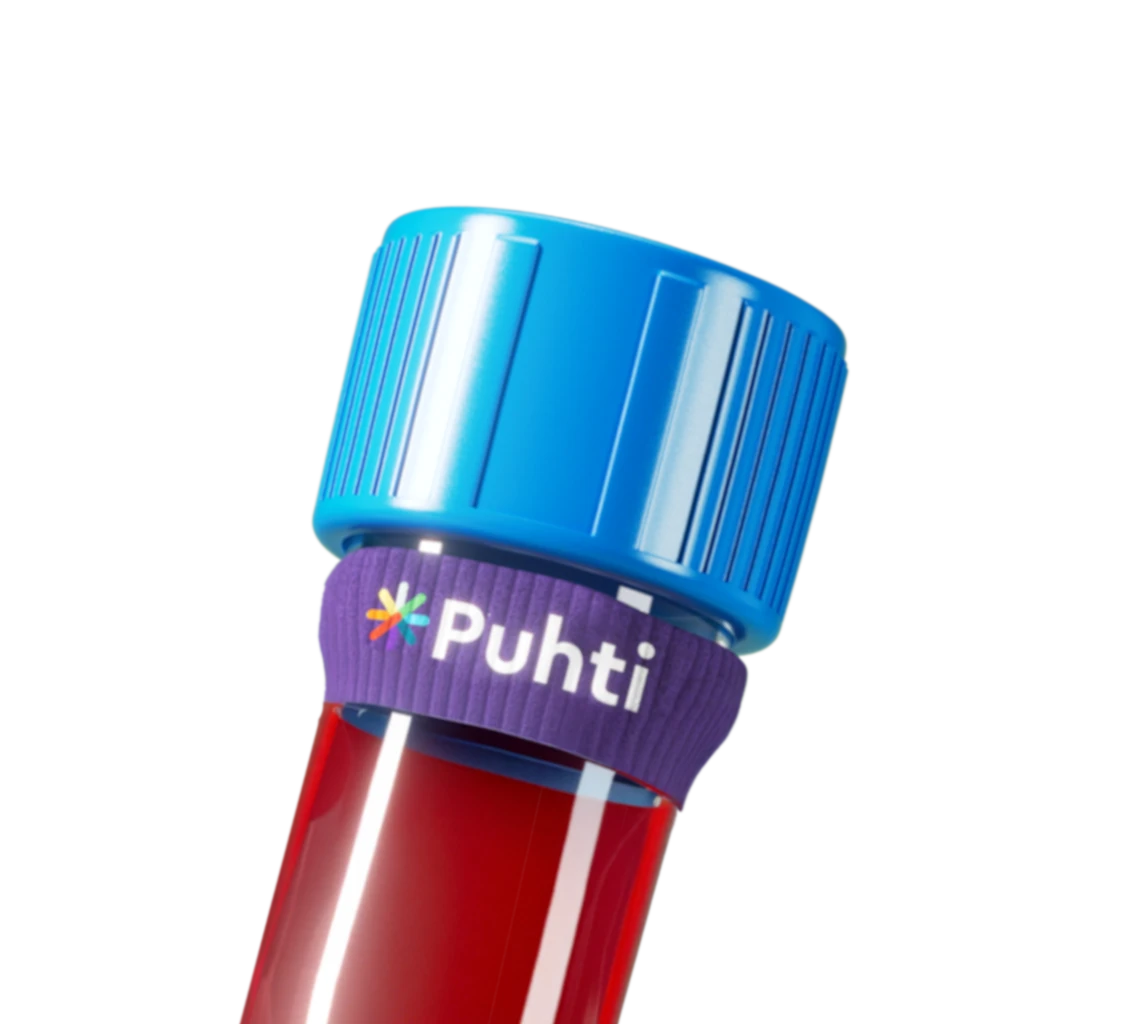Sodium regulates the body’s fluid balance
Sodium is one of the most important salts in the body. It is essential for life, being a key substance in maintaining the membrane tension of all cells.

Sodium regulates the body’s fluid balance
Sodium is one of the most important salts in the body. It is essential for life, being a key substance in maintaining the membrane tension of all cells.
Sodium
- Sodium regulates the body’s fluid balance.
- At the moment, Finns get too much salt from their diet compared to the recommended daily intake.
- Excessive blood sodium levels can disrupt many vital functions.
Sodium
Sodium is mainly obtained from food in the form of table salt or foods that naturally contain salt. However, dietary sodium has little effect on blood sodium levels as the kidneys remove excess salt.
At the moment, Finns get too much salt from their diet compared to the recommended daily intake.
Sodium is one of the most important salts in the body. It is essential for life, being a key substance in maintaining the membrane tension of all cells. Excessive blood sodium levels can disrupt many vital functions.
Sources of sodium in the diet
Sodium in salt is a prerequisite for the normal functioning of the body. While we need salt every day, excessive use is not recommended.
At the moment, Finns get too much salt from their diet compared to the recommended daily intake. The results of the FinDiet 2012 survey show that Finnish men ingest an average of 8.9 grammes of salt in their daily diet, while women ingest 6.5 grammes.
Many foods naturally contain sodium and that amount would be enough to meet an adult’s essential sodium needs. Cow’s milk, meat, and eggs, for example, are excellent natural sources of sodium.
Most common sources of salt in the Finnish diet are bread and other cereal products, meat products, cheese, spice mixtures and sauces, and processed snacks. These foods contain hidden salt that is industrially processed, which means that it lacks the minerals and micronutrients obtained from natural salt.
Natural salts are the most favourable source of salt for the body as they contain minerals and micronutrients important for the body, such as potassium, calcium, magnesium, and iron.
What is the recommended sodium intake in Finland?
The Finnish Heart Association’s recommended salt intake for adults is no more than 5 grammes per day which equals to about one teaspoon.
Reference values for sodium
Reference values for sodium is 137 – 144 mmol/l.
Reference levels may vary depending on the laboratory and the test analysis method. Puhti samples are taken and analysed at the laboratories of Mehiläinen.
Low sodium level (hyponatremia)
There are basically two causes of low sodium levels (hyponatremia): either too much sodium is lost or too much water accumulates in the body.
Typically, low blood sodium levels are the result of heavy physical exercise-induced sweating. Fluid and salts are lost along with sweat, creating an imbalance in the body’s fluid and salt balance.
- Some diseases cause disturbances in the functioning of the water hormone vasopressin that regulates water in our bodies, as a result of which the blood plasma gets too diluted.
- Certain medications can also sometimes cause a similar disorder.
- Drinking too much can also lead to dangerously low sodium levels.
Mild hyponatraemia is common in patients with congestive heart failure and should not be treated with additional salt or saline tablets. This can lead to swelling and worsening symptoms of heart failure. Loss of sodium caused, for example, by prolonged vomiting or diarrhoea is also a common reason for low sodium values.
Low sodium levels are linked to cardiac arrhythmia and weakness. Very low levels (less than 120 mmol/L) can lead to convulsions and impaired consciousness.
High sodium level
Compared to low sodium levels, elevated sodium levels (hypernatremia) are much less common. In fact, elevated levels can only happen when, for some reason, the body is not able to replace the water lost.
A rare disease of the pituitary region blocks the production of the water hormone, as a result of which the patient may urinate more than ten litres a day. The patient is unable to drink enough liquids to replace the water lost in urine, which is why the sodium value increases. Excessive blood sodium levels can disrupt many vital functions.
How can I get my sodium level tested?
Check out the Extensive Puhti laboratory package (woman), which includes sodium.
Extensive Puhti laboratory package (women) is a great choice when you want to gain more thorough information about the well-being of your body. The laboratory package will help you check how your body is doing and make better choices for your health. More than 30 tests are included, including cholesterol, blood glucose, vitamins D and B12, ferritin and sodium.
The tests can be taken at Mehiläinen laboratories in more than 75 locations across Finland.
Through Puhti, you can also easily book a remote appointment with a doctor as a separate service, during which you can go through all the results.





